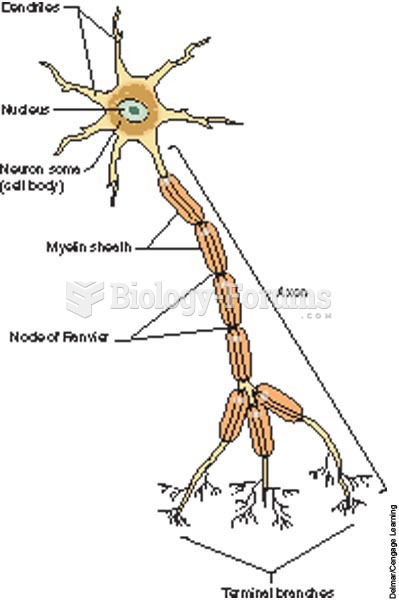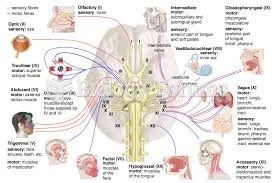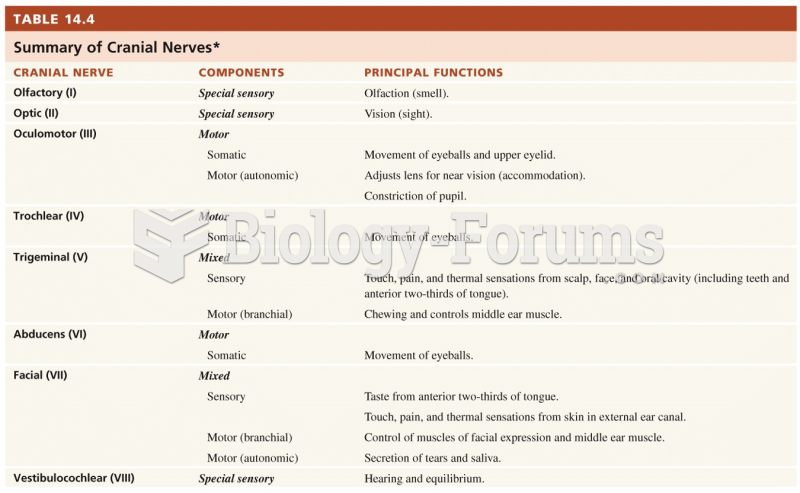|
|
|
The first documented use of surgical anesthesia in the United States was in Connecticut in 1844.
People with alcoholism are at a much greater risk of malnutrition than are other people and usually exhibit low levels of most vitamins (especially folic acid). This is because alcohol often takes the place of 50% of their daily intake of calories, with little nutritional value contained in it.
Approximately 25% of all reported medication errors result from some kind of name confusion.
For pediatric patients, intravenous fluids are the most commonly cited products involved in medication errors that are reported to the USP.
The U.S. Preventive Services Task Force recommends that all women age 65 years of age or older should be screened with bone densitometry.







